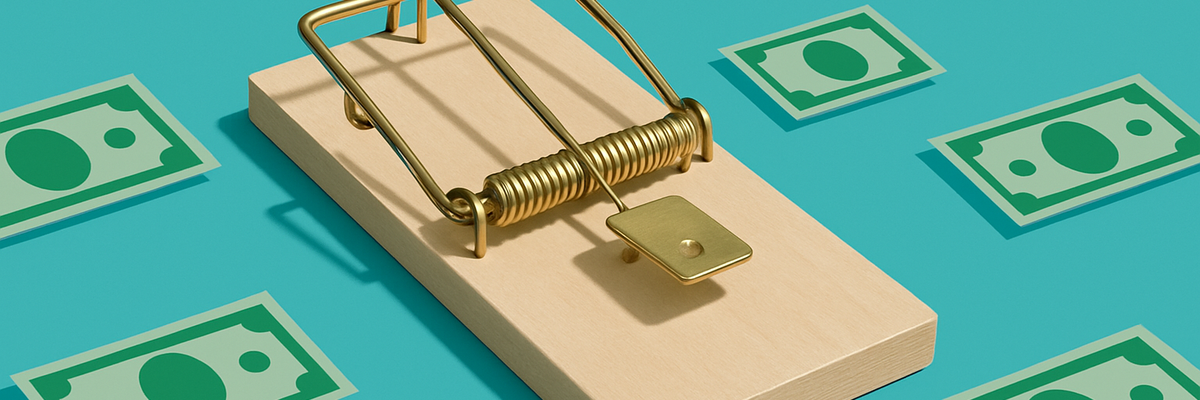3 Expensive Savings Account Mistakes You Might Be Making

Right now, the average savings account pays 0.38% APY, according to the FDIC. But with inflation (which is around 2.4% currently) cash held in the average account is actually losing value month over month.
I've been there. Back in the day, I parked most of my emergency fund in a regular checking account because it was easy and felt safe. But after comparing APYs for top online banks and doing some math, I realized I was basically giving away money.
So let's make sure you're not making the same mistakes.
1. Using a savings account with low interest
Probably the most common mistake is keeping cash in the wrong type of account. There's a huge difference in APY between regular savings accounts and high-yield savings accounts (HYSAs).
The top online HYSAs right now are paying 4.00% to 4.40% APY, while the national average savings accounts are paying under 0.38%. That's a difference of more than 10X.
Here's what that comparison looks like with a $20,000 deposit over the course of a year:
| Account Type | APY | Interest Earned |
|---|---|---|
| Standard savings account | 0.38% | $76 |
| HYSA | 4.00% | $800 |
HYSAs are FDIC insured up to $250,000 just like traditional savings and checking accounts. They're free to open, and only take about five minutes to set up online.
If you don't have an HYSA currently, here's one of my favorites right now with a killer rate… Check out the CIT Platinum Savings account, offering 4.00% APY for balances of $5,000 or more.
2. Saving too much (yes, that's a thing)
A buddy of mine has $200,000 parked in a savings account. He's not saving for a house, nor does he have any big plans for the money. He just doesn't like risk and is scared of investing.
But the thing is, even with a top high-yield savings rate of 4.00%, he's potentially missing out on serious long-term growth.
Let's say he put just $100,000 into a brokerage account and invested it in a low-cost index fund (like the S&P 500) earning an average 8% annually. In 30 years that $100,000 would grow to over $1 million.
Saving is smart. But investing is how wealth builds. Don't keep too much cash in your savings account!
3. Getting nickel-and-dimed by bank fees
Between maintenance fees, ATM fees, overdraft fees, and even paper statement charges, some banks seem to find a way to charge you just for having a savings account.
It's death by a thousand cuts -- and it can easily wipe out any interest you're earning.
The better move is using an online bank. Most are built on the promise of no monthly fees, no minimums, and super simple user experiences. (Plus, they tend to offer far better interest rates than the big traditional players).
Looking for a hassle-free place to stash your savings? Compare the top online savings accounts here, and choose the one that fits you best.
These may all seem like small money mistakes that don't hurt much, but they can actually make a big difference over time. Avoid these three expensive mistakes for greater peace of mind and a heftier savings balance.
Our Research Expert
We're firm believers in the Golden Rule, which is why editorial opinions are ours alone and have not been previously reviewed, approved, or endorsed by included advertisers. Motley Fool Money does not cover all offers on the market. Motley Fool Money is 100% owned and operated by The Motley Fool. Our knowledgeable team of personal finance editors and analysts are employed by The Motley Fool and held to the same set of publishing standards and editorial integrity while maintaining professional separation from the analysts and editors on other Motley Fool brands. Terms may apply to offers listed on this page. APYs are subject to change at any time without notice.


